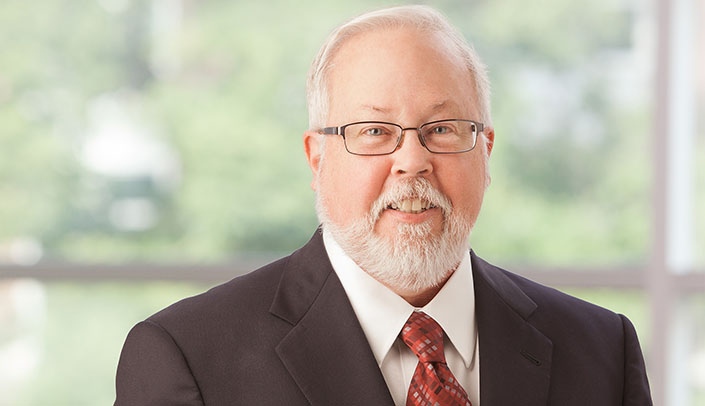The UNMC Department of Anesthesiology will celebrate the retirement of Reed Peters, M.D., with an event on June 28 from 2-4 p.m. at The Restaurant in the Fred & Pamela Buffet Cancer Center. Light refreshments will be served, and UNMC and Nebraska Medicine colleagues are invited to attend the event.
A professor of anesthesiology, Dr. Peters is retiring after more than 40 years of service.
“Dr. Peters has been an outstanding and dedicated faculty member in our department for decades,” said Department Chairman Steven Lisco, M.D. “He has personally trained or mentored many of the current faculty. His expertise and leadership will be greatly missed.”
Dr. Peters earned his medical degree from UNMC College of Medicine in 1975 and stayed on to complete his residency in anesthesiology. After residency, he was invited to join the UNMC faculty and eventually was promoted to professor with tenure in 2002. He served as interim chairman of the UNMC Department of Anesthesiology from August 1985 until February 1986.
He has served in leadership roles in several organizations and, in January 2007, was honored with the Metropolitan Omaha Medical Society’s Distinguished Service Award for his work to ban smoking in Omaha’s bars and restaurants. Dr. Peters’ proud accomplishments include teaching hundreds of students, residents and fellows through the years and organizing the Midwest Anesthesiology Conference in 1987 and 2002 in Omaha.
“One of my favorite memories was mentoring M1 externs for one or two weeks each summer and then watching them return for an elective in anesthesiology during their M4 year,” Dr. Peters said. “Many of these students have pursued a career in anesthesiology with several becoming partners in my academic practice.”

Dr. Peters, along with his colleague, Dr. Jim Chapin, were key to the early success of our liver transplant program. In early1985, when I was still in Pittsburgh (before moving to NE in June), both of them spent several months in Pittsburgh learning how to keep very sick patients with advanced liver disease alive during transplant surgery. Even though our first patients were some of the sickest I had ever taken to the operating room, Jim and Reed got them through their surgery. This was at a time when we were still learning a great deal about a variety of issues involved in operative management, including something as basic as correcting patients' blood composition so that it would clot normally. Thank you for all your hard work, Reed. We could not have done it without your support.
Enjoy retirement to its fullest, Reed. It doesn't get any better than that!